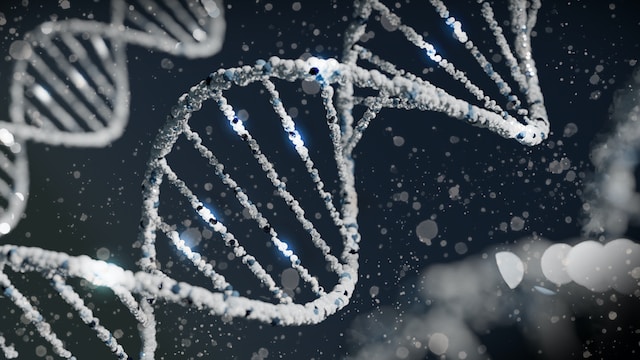In the fascinating world of genetics, a ground-breaking discovery has emerged: epigenetics. Unlike traditional genetics, which focuses on DNA sequences as the sole determinant of our traits, epigenetics explores the dynamic and intricate interactions between our genes and the environment. This burgeoning field has revolutionised our understanding of how our lifestyle choices and surroundings can influence our genetic destiny. In this blog post, we delve into the captivating world of epigenetics and its implications for our health and well-being.
Health Statistics Within Nottingham
As per information provided by Nottingham City Council, spanning the years 2018 to 2020, Nottingham experiences a considerable deviation from the national average life expectancy observed across England. Specifically, men in Nottingham exhibit a life expectancy shorter by about 3 years, while women in the city have a lifespan shorter by approximately 2 years when contrasted with the England average.
From a ranking standpoint, Nottingham’s male population finds itself positioned at the 138th spot out of 150 local authorities in England concerning life expectancy. The female demographic fares slightly better but still occupies the 134th place in the same ranking.
Furthermore, a marked contrast in life expectancy emerges within Nottingham between its most prosperous areas, typified by West Bridgford, and its least affluent regions. This variance equates to roughly 8 years for both men and women, showcasing the substantial impact of epigenetics on health outcomes within the city.
What Is Epigenetics?
Epigenetics is a branch of genetics that investigates the chemical modifications and tags on our DNA and associated proteins, known as histones, without altering the underlying genetic sequence. These modifications can activate or suppress specific genes, determining their expression or activity levels. Think of epigenetics as a conductor of an orchestra, shaping the way genes play their unique tunes without altering the genetic blueprint.
Nature vs. Nurture
For decades, the age-old debate of nature versus nurture has intrigued scientists and thinkers alike. Epigenetics bridges this gap by revealing that it’s not an either or scenario but rather a harmonious interplay between our genetic makeup and the environment we experience. While we inherit our genes from our parents, epigenetic changes can be influenced by a range of factors, including diet, stress, exercise, exposure to toxins, and even social interactions. In essence, our lifestyle choices have the potential to influence how our genes behave, opening up a new realm of possibilities for personalised medicine and preventive healthcare.
From Generation To Generation
One of the most astonishing aspects of epigenetics is its ability to pass down certain traits and modifications to future generations. These heritable changes, known as transgenerational epigenetic inheritance, challenge the long-standing notion that only genetic mutations can be transmitted from parent to offspring. Environmental exposures experienced by parents can leave an epigenetic imprint on their germ cells (sperm and eggs), which may influence the health and development of subsequent generations. This discovery raises thought-provoking questions about the lasting impact of our choices on the health of future generations.
Epigenetics & Disease
The influence of epigenetics extends far beyond inherited traits. It plays a pivotal role in the development of various diseases, including cancer, diabetes, and neurological disorders. Understanding the epigenetic mechanisms that underlie these conditions has opened up exciting possibilities for targeted therapies and innovative treatment approaches.
IV Therapy To Improve Health
Epigenetics has undeniably transformed the landscape of genetics, revealing a level of complexity and interconnectedness previously unknown. Through this intricate dance of nature and nurture, we now understand that our genes are not static but adaptable entities, responsive to the world around us. Epigenetics offers a new perspective on health and disease, emphasising the profound impact of our lifestyle choices on our genetic destiny. As research continues to unravel the intricacies of epigenetics, we find ourselves on the cusp of a new era in medicine.
IV vitamin drip therapy and personalised nutritional plans are two approaches that have gained attention for their potential to enhance overall health. IV drip therapy involves direct nutrient infusion into the bloodstream, providing rapid replenishment of vitamins, minerals, and hydration. This method is especially beneficial for addressing deficiencies, boosting energy, and supporting immune function.
On the other hand, personalised nutritional plans offer tailored dietary strategies that cater to an individual’s unique needs and health goals. These plans can prevent and manage various health conditions, promote energy and vitality, optimise gut health, and contribute to longevity and brain health. When combined with exercise, sleep, and stress management, these approaches collectively contribute to comprehensive health improvement. Contact Singh Pharmacy today to find out more and start improving your health today.
